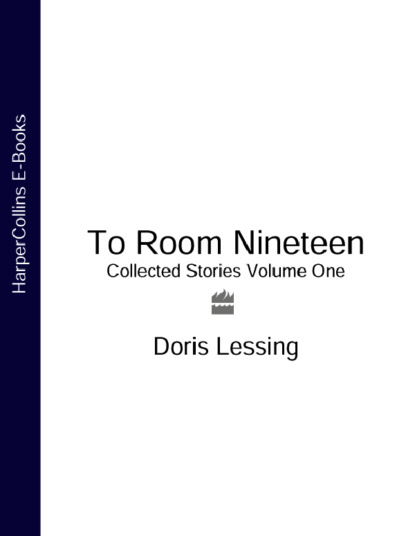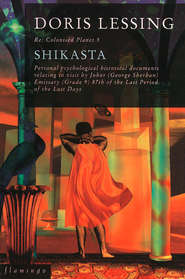По всем вопросам обращайтесь на: info@litportal.ru
(©) 2003-2024.
✖
To Room Nineteen: Collected Stories Volume One
Автор
Год написания книги
2019
Настройки чтения
Размер шрифта
Высота строк
Поля
And then, inevitably, the sadness deepened in her till she consciously resisted it; and into him came the flicker of cruelty.
‘Your nose needs powdering,’ he said.
‘You need a whipping boy.’
But always he refused to feel sad. She shrugged, and, leaving him to it, turned to look out. So did he. At the far end of the boulevard there was a faint agitation, like stirred ants, and she heard him mutter, ‘Yes, and it still goes on …’
Mocking, she said, ‘Nothing changes, everything always the same …’
But he had flushed. ‘I remember,’ he began, in a different voice. He stopped, and she did not press him, for he was gazing at the distant demonstrators with a bitterly nostalgic face.
Outside drifted the lovers, the married couples, the students, the old people. There the stark trees; there the blue, quiet sky. In a month the trees would be vivid green; the sun would pour down heat; the people would be brown, laughing, bare-limbed. No, no, she said to herself, at this vision of activity. Better the static sadness. And, all at once, unhappiness welled up in her, catching her throat, and she was back fifteen years in another country. She stood in blazing tropical moonlight, stretching her arms to a landscape that offered her nothing but silence and then she was running down a path where small stones glinted sharp underfoot, till at last she fell spent in a swathe of glistening grass. Fifteen years.
It was at this moment that the man turned abruptly and called the waiter and ordered wine.
‘What,’ she said humorously, ‘already?’
‘Why not?’
For the moment she loved him completely and maternally, till she suppressed the counterfeit and watched him wait, fidgeting, for the wine, pour it, and then set the two glasses before them beside the still-brimming coffee cups. But she was again remembering that night, envying the girl ecstatic with moonlight, who ran crazily through the trees in an unsharable desire for – but that was the point.
‘What are you thinking of?’ he asked, still a little cruel.
‘Ohhh,’ she protested humorously.
‘That’s the trouble, that’s the trouble.’ He lifted his glass, glanced at her, and set it down. ‘Don’t you want a drink?’
‘Not yet.’
He left his glass untouched and began to smoke.
These moments demanded some kind of gesture – something slight, even casual, but still an acknowledgement of the separateness of these two people in each of them; the one seen, perhaps, as a soft-staring never-closing eye, observing, always observing, with a tired compassion; the other, a shape of violence that struggled on in the cycle of desire and rest, creation and achievement.
He gave it her. Again their eyes met in the grave irony, before he turned away, flicking his fingers irritably against the table; and she turned also, to note the black branches where the sap was tingling.
‘I remember,’ he began; and again she said, in protest, ‘Ohhh!’
He checked himself. ‘Darling,’ he said dryly, ‘you’re the only woman I’ve ever loved.’ They laughed.
‘It must have been this street. Perhaps this café – only they change so. When I went back yesterday to see the place where I came every summer, it was a pâtisserie, and the woman had forgotten me. There was a whole crowd of us – we used to go around together – and I met a girl here, I think, for the first time. There were recognized places for contacts; people coming from Vienna or Prague, or wherever it was, knew the places – it couldn’t be this café, unless they’ve smartened it up. We didn’t have the money for all this leather and chromium.’
‘Well, go on.’
‘I keep remembering her, for some reason. Haven’t thought of her for years. She was about sixteen, I suppose. Very pretty – no, you’re quite wrong. We used to study together. She used to bring her books to my room. I liked her, but I had my own girl, only she was studying something else, I forget what.’ He paused again, and again his face was twisted with nostalgia, and involuntarily she glanced over her shoulder down the street. The procession had completely disappeared, not even the sound of singing and shouting remained.
‘I remember her because …’ And, after a preoccupied silence: ‘Perhaps it is always the fate of the virgin who comes and offers herself, naked, to be refused.’
‘What!’ she exclaimed, startled. Also, anger stirred in her. She noted it, and sighed. ‘Go on.’
‘I never made love to her. We studied together all that summer. Then, one weekend, we all went off in a bunch. None of us had any money, of course, and we used to stand on the pavements and beg lifts, and meet up again in some village. I was with my own girl, but that night we were helping the farmer get his fruit, in payment for using his barn to sleep in, and I found this girl Marie was beside me. It was moonlight, a lovely night, and we were all singing and making love. I kissed her, but that was all. That night she came to me. I was sleeping up in the loft with another lad. He was asleep. I sent her back down to the others. They were all together down in the hay. I told her she was too young. But she was no younger than my own girl.’ He stopped; and after all these years his face was rueful and puzzled. ‘I don’t know,’ he said. ‘I don’t know why I sent her back.’ Then he laughed. ‘Not that it matters, I suppose.’
‘Shameless hussy,’ she said. The anger was strong now. ‘You had kissed her, hadn’t you?’
He shrugged. ‘But we were all playing the fool. It was a glorious night – gathering apples, the farmer shouting and swearing at us because we were making love more than working, and singing and drinking wine. Besides, it was that time: the youth movement. We regarded faithfulness and jealousy and all that sort of thing as remnants of bourgeois morality.’ He laughed again, rather painfully. ‘I kissed her. There she was, beside me, and she knew my girl was with me that weekend.’
‘You kissed her,’ she said accusingly.
He fingered the stem of his wineglass, looking over at her and grinning. ‘Yes, darling,’ he almost crooned at her. ‘I kissed her.’
She snapped over into anger. ‘There’s a girl all ready for love. You make use of her for working. Then you kiss her. You know quite well …’
‘What do I know quite well?’
‘It was a cruel thing to do.’
‘I was a kid myself …’
‘Doesn’t matter.’ She noted, with discomfort, that she was almost crying. ‘Working with her! Working with a girl of sixteen, all summer!’
‘But we all studied very seriously. She was a doctor afterwards, in Vienna. She managed to get out when the Nazis came in, but …’
She said impatiently, ‘Then you kissed her, on that night. Imagine her, waiting till the others were asleep, then she climbed up the ladder to the loft, terrified the other man might wake up, then she stood watching you sleep, and she slowly took off her dress and …’
‘Oh, I wasn’t asleep. I pretended to be. She came up dressed. Shorts and sweater – our girls didn’t wear dresses and lipstick – more bourgeois morality. I watched her strip. The loft was full of moonlight. She put her hand over my mouth and came down beside me.’ Again, his face was filled with rueful amazement. ‘God knows, I can’t understand it myself. She was a beautiful creature. I don’t know why I remember it. It’s been coming into my mind the last few days.’ After a pause, slowly twirling the wineglass: ‘I’ve been a failure in many things, but not with …’ He quickly lifted her hand, kissed it, and said sincerely: ‘I don’t know why I remember it now, when …’ Their eyes met, and they sighed.
She said slowly, her hand lying in his: ‘And so you turned her away.’
He laughed. ‘Next morning she wouldn’t speak to me. She started a love affair with my best friend – the man who’d been beside me that night in the loft, as a matter of fact. She hated my guts, and I suppose she was right.’
‘Think of her. Think of her at that moment. She picked up her clothes, hardly daring to look at you …’
‘As a matter of fact, she was furious. She called me all the names she could think of; I had to keep telling her to shut up, she’d wake the whole crowd.’
‘She climbed down the ladder and dressed again, in the dark. Then she went out of the barn, unable to go back to the others. She went into the orchard. It was still brilliant moonlight. Everything was silent and deserted, and she remembered how you’d all been singing and laughing and making love. She went to the tree where you’d kissed her. The moon was shining on the apples. She’ll never forget it, never, never!’
He looked at her curiously. The tears were pouring down her face.
‘It’s terrible,’ she said. ‘Terrible. Nothing could ever make up to her for that. Nothing, as long as she lived. Just when everything was most perfect, all her life, she’d suddenly remember that night, standing alone, not a soul anywhere, miles of damned empty moonlight …’
He looked at her shrewdly. Then, with a sort of humorous, deprecating grimace, he bent over and kissed her and said: ‘Darling, it’s not my fault; it just isn’t my fault.’
‘No,’ she said.
He put the wineglass into her hands; and she lifted it up, looked at the small crimson globule of warming liquid, and drank with him.
He (#ulink_3382efd5-480c-5e52-b575-226afc8720f4)
‘Goodness! You gave me a start, Mary …’











